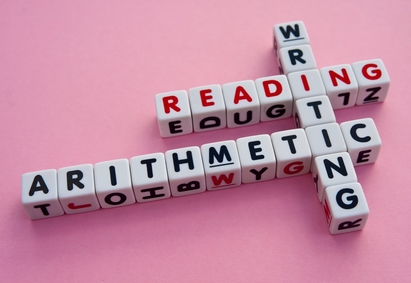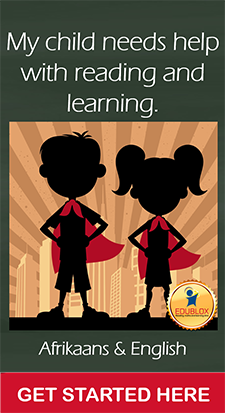

“A child’s ability to read, write and do arithmetic (maths) sets the foundation for their academic success, and impacts their potential for future accomplishments across-the-board,” says Susan du Plessis, Director of Educational Programmes at Edublox. “Some learners cannot read but can write and others struggle to do maths but can read easily – it is crucial for a child to have all three foundational learning skills in place.”
In the classroom, reading is king; it is crucial for learning and achieving throughout the school career and into university. The benefits of reading, however, stretch far beyond the classroom. “Reading will help your child learn new words and build his vocabulary, expand their general knowledge, help them to concentrate better and focus on one task. Modern kids are so bombarded with sound, light and movement from electronic gadgets, that reading is actually relaxing for the brain,” says du Plessis.
Similar to reading, putting pen to paper and writing in our instant and technological age of emails, texts and tweets stimulates the brain. “Writing fires up the brain as children not only learn to read more quickly when they first learn to write by hand, but they also remain better able to formulate ideas and recall information,” explains du Plessis.
The final and equally important aspect of laying a strong foundation for a child’s academic performance is ensuring sound mathematical understanding and thinking. “People are easily misled to believe that mathematics is not a prerequisite for a successful career, however, whether in science, business, or even in our day-to-day living, we cannot escape the use of numbers,” explains du Plessis.
A child’s ability to do read, write and do maths depends on a number of cognitive skills such as attention span, visual and auditory perception, sequential and working memory and logical thinking. “Make sure that these skills have been well developed,” urges du Plessis, and shares easy tips for parents looking to help their child excel in the three R’s of learning:
Reading
- Parents of young children should read to them as often as possible. “Teaching your child nursery rhymes is a great way to stimulate the brain and improve memory,” says du Plessis. “Research has shown that knowledge of nursery rhymes among three-year-olds is a significant predictor of pre-reading skills later on, even after the child’s IQ and their mothers’ educational levels are factored out,” says du Plessis.
X - If your child is having trouble learning to read, the best approach is to take immediate action. Ninety-five percent of poor readers can be brought up to grade level if they receive effective help early on. The longer you wait to get help for your child who has reading difficulties, the harder it will be for them to catch up later on.
X - Do not rely on computer programs to address your child’s reading problems. “Research has proven that computer reading programs cannot solve reading difficulties,” says du Plessis. When your child is a good reader, however, technology can be used to broaden their horizons and teach them to speed read.
Writing
- Have some fun and crumple papers with your child! This will help improve their fine motor skills, making writing easier and their handwriting neater. Use A4 size scrap paper – give your child one sheet of paper in each hand. They must then simultaneously crumple both papers into tight balls. It is important that each hand strictly does its own work. Ensure that your child sits with their hands wide apart, so that one hand cannot offer any help to the other. As part of the game, they are not allowed to press their hands against their body or on any other object, like a table. Make sure they crumple at least three sheets of paper per hand, per day.
X
- Other exercises that will help to improve hand strength, which ultimately leads to better handwriting, is to throw and catch beanbags and to squeeze stress balls.
Arithmetic (Maths)
- Make sure that your child can count fluently, forwards as well as backwards. Thereafter, skip counting should be introduced. Skip counting – counting odd or even numbers only – is important in the development of fluency in calculation, number sense and as the basis of multiplication and division.
X
- There is much in maths that one simply has to know and therefore has to learn, for example many terms, definitions, symbols, theorems and axioms. Make sure that your child knows the words for different shapes, for example. If they do not know what a sphere is, they will have to guess when confronted by twelve different objects in a test situation.
Edublox is a reading, maths and learning clinic with 25 centres across the country. The Edublox multisensory brain-training programmes enable learners to overcome learning obstacles such as reading, spelling and mathematical difficulties, assisting them to become life-long learners and empowering them to realize their highest educational goals. Through the various programmes, Edublox has achieved astounding results nationally and internationally.






Leave a Reply